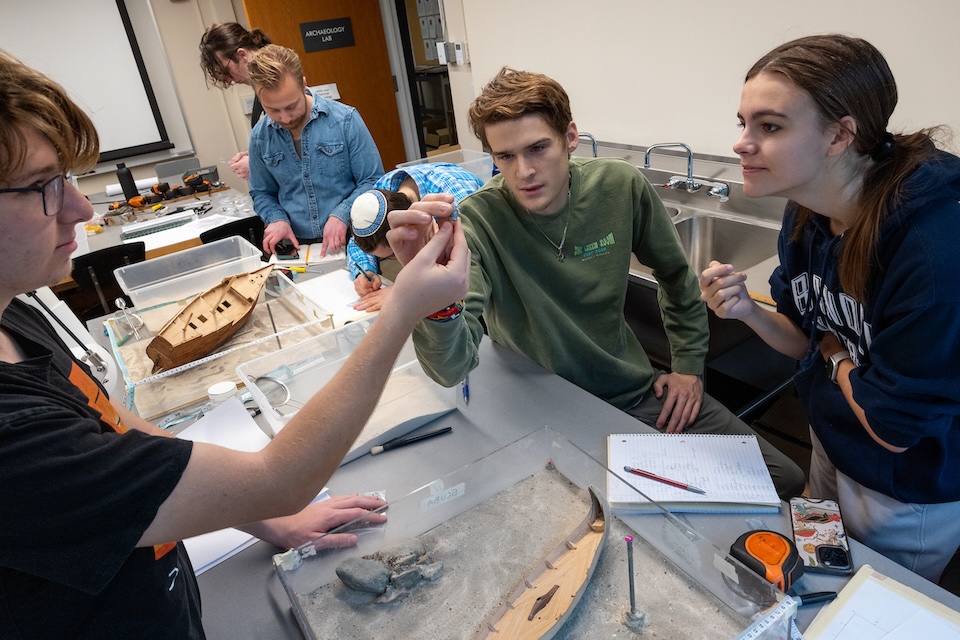Research
Faculty, graduate students and undergraduates in the social sciences conduct research on a wide range of questions and problems.
In our fieldsites, labs, archives and classrooms, we engage with historical and contemporary issues around the globe ranging from cultural diversity and identity to health policy to immigration to aging. We utilize multiple research methods striving to learn with and from one another and with those we meet in the process.
Faculty research has been supported by grants and fellowships from the National Science Foundation, National Institute of Health, National Endowment for the Humanities, Alfred P. Sloan Foundation, John Templeton Foundation and more. See current and recent research achievements for social sciences faculty.
For faculty interested in collaborating with undergraduates on research, the Undergraduate and Faculty Research Partnerships provide a way to get involved.
Hands-on Learning

Guided by professor Charlie Goudge, students apply archaeological research techniques to model shipwrecks, gaining practical experience in maritime excavation and analysis.